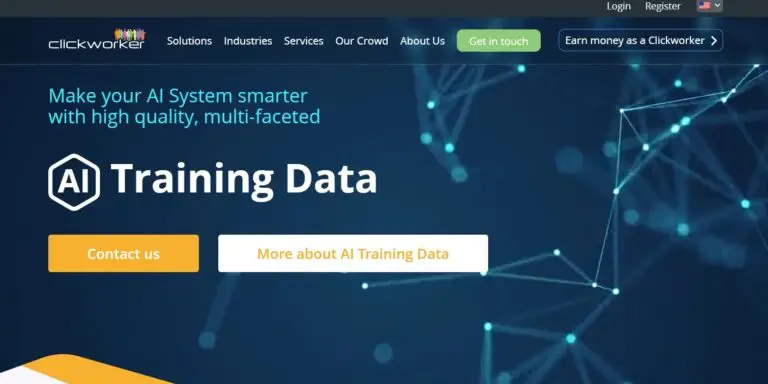
Introduction to AI Tools
What Are AI Tools?
Artificial Intelligence (AI) tools are software or systems designed to perform tasks that typically require human intelligence. These tools can analyze data, learn from patterns, and make decisions. From virtual assistants like Siri to advanced analytics platforms, AI tools are reshaping how we live and work.
A Brief History of AI Technology
AI’s journey began in the mid-20th century with basic algorithms. Over decades, innovations like machine learning, deep learning, and natural language processing have paved the way for today’s advanced tools. What once seemed like science fiction is now an integral part of our daily lives.
Benefits of AI Tools
Enhancing Productivity
AI tools automate repetitive tasks, freeing up time for creative and strategic work. Imagine a marketing team using AI to schedule social media posts or a researcher analyzing large datasets in minutes instead of days.
Cost Efficiency and Automation
By reducing manual labor and streamlining processes, AI tools cut costs significantly. For instance, chatbots in customer service can handle inquiries 24/7 without the need for additional staff.
Real-Time Data Processing and Analysis
AI-powered systems process massive amounts of data in real time, offering insights that help businesses make informed decisions quickly.
Types of AI Tools
Machine Learning Tools
Machine learning platforms enable systems to learn from data and improve over time without explicit programming.
Natural Language Processing (NLP) Tools
NLP tools, like language translators or sentiment analysis platforms, help machines understand and interact with human language.
Computer Vision Tools
These tools interpret visual data from images or videos, powering applications like facial recognition and object detection.
Robotics and Automation

AI-driven robots are revolutionizing industries, from manufacturing to logistics, by performing tasks with precision and efficiency.
Industries Transformed by AI Tools
Healthcare
Diagnosing Diseases
AI-powered diagnostic tools analyze medical images and patient data to detect diseases like cancer at early stages.
Personalized Treatment Plans
AI systems create tailored treatment plans by analyzing individual patient profiles and medical histories.
Finance
Fraud Detection
AI algorithms detect suspicious activities in transactions, protecting consumers and businesses from financial fraud.
Automated Trading Systems
AI tools in finance make data-driven trading decisions, maximizing profits and minimizing risks.
Retail and E-Commerce
Inventory Management
AI monitors inventory levels in real time, reducing stockouts and overstocking issues.
Personalized Shopping Experiences
AI tools recommend products based on browsing history and preferences, enhancing customer satisfaction.
Education
Adaptive Learning Platforms
AI-powered platforms adapt lessons to a student’s learning pace and style.
Virtual Tutors
Virtual tutors provide personalized assistance, making learning accessible anytime, anywhere.
Challenges and Ethical Concerns in AI Adoption
Data Privacy and Security
AI tools require vast amounts of data, raising concerns about how this data is stored and used.
Bias in AI Systems
Improperly trained AI systems can exhibit bias, leading to unfair outcomes.
Job Displacement Concerns
As AI tools automate tasks, some worry about job losses. However, new roles and opportunities are also emerging.
Future of AI Tools
Emerging Trends in AI
Technologies like generative AI, quantum computing, and advanced robotics are shaping the next wave of innovation.
How AI Will Shape the Next Decade
From self-driving cars to AI-powered healthcare breakthroughs, the next decade promises unparalleled advancements.
How to Choose the Right AI Tools for Your Needs
Defining Your Goals
Clarify what you want to achieve before selecting an AI tool.
Evaluating Tool Features
Compare tools based on features, scalability, and ease of integration.
Understanding Cost-Benefit Ratios
Ensure the benefits of the tool outweigh the costs for your specific needs.

Conclusion
AI tools are more than just technological marvels—they’re becoming indispensable in every aspect of life. From businesses to personal tasks, these tools enhance efficiency, reduce costs, and create endless possibilities for innovation.
FAQs
What is the most popular AI tool today?
ChatGPT, developed by OpenAI, is currently among the most popular AI tools.
Can small businesses afford AI tools?
Yes, many AI tools are affordable or offer free versions tailored for small businesses.
How can AI tools benefit daily life?
AI tools simplify tasks like scheduling, online shopping, and even home automation.
Are AI tools replacing human jobs?
While some jobs are being automated, AI is also creating new opportunities in tech and other sectors.
How do I start using AI tools?
Start by identifying your needs and researching tools that fit your requirements. Many platforms offer free trials to get started.




